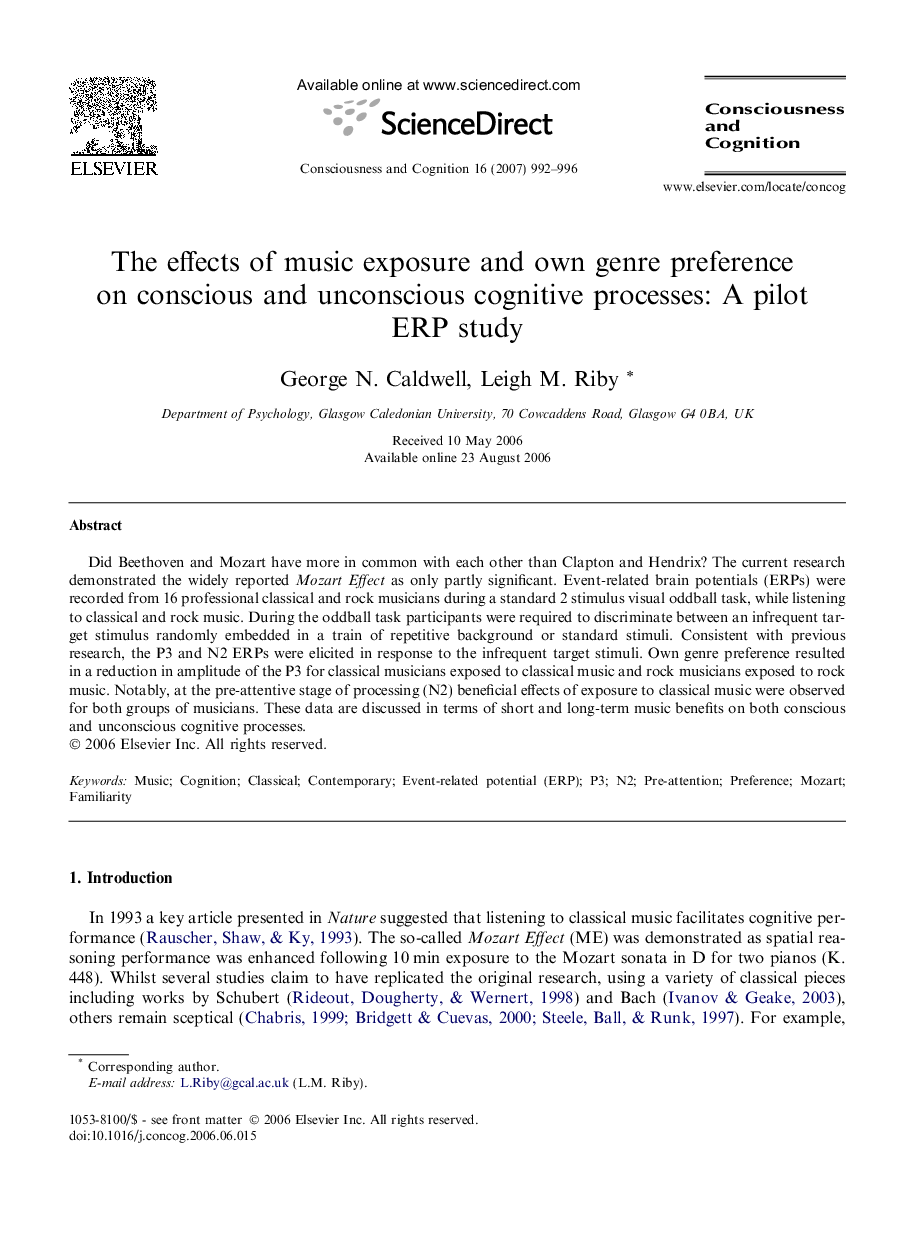| Article ID | Journal | Published Year | Pages | File Type |
|---|---|---|---|---|
| 927978 | Consciousness and Cognition | 2007 | 5 Pages |
Did Beethoven and Mozart have more in common with each other than Clapton and Hendrix? The current research demonstrated the widely reported Mozart Effect as only partly significant. Event-related brain potentials (ERPs) were recorded from 16 professional classical and rock musicians during a standard 2 stimulus visual oddball task, while listening to classical and rock music. During the oddball task participants were required to discriminate between an infrequent target stimulus randomly embedded in a train of repetitive background or standard stimuli. Consistent with previous research, the P3 and N2 ERPs were elicited in response to the infrequent target stimuli. Own genre preference resulted in a reduction in amplitude of the P3 for classical musicians exposed to classical music and rock musicians exposed to rock music. Notably, at the pre-attentive stage of processing (N2) beneficial effects of exposure to classical music were observed for both groups of musicians. These data are discussed in terms of short and long-term music benefits on both conscious and unconscious cognitive processes.
